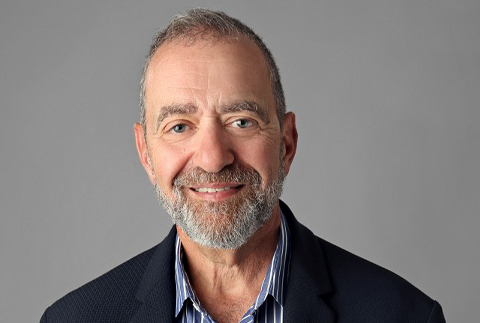PhD in Psychology
with an emphasis in Media & Technology
Where technology meets human experience.
[pictured alum: Dr. Lawrence Drake II, Class of 2015 – Albany State University Interim President]
PhD in Psychology with an emphasis in Media & Technology
The Fielding PhD in Psychology with an emphasis in Media & Technology prepares students to work at the intersection of psychology theories and media technologies. The curriculum blends the study of social behaviors, cognition, perception, and emotion with the research skills you need to be a specialist in psychology applied to media and technology. How people interact with, use, and respond to media affects every aspect of life, from relationships, education, entertainment, and marketing to addressing the pressing social and ethical issues of a digital world. Media psychology is not an end goal, it is a powerful set of skills that make you better able to tackle your passion and change the world, to harness and leverage the power of media technologies to do what matters most to you.
You will join students come from a variety of professional experiences and academic backgrounds with a common goal. You will join a community of scholar-practitioners—changemakers—who recognize that media psychology gives you the ability to see through the noise and focus on the drivers of human behavior to get to the heart of the issue, whether it’s technology development, communications strategies or expanding the field of academic knowledge.
Upcoming Events

Media Psychology News
The latest news, announcements, and special events from Fielding’s Media Psychology program.
What is Media Psychology?
Media psychology starts with psychology. Where traditional communication, media studies, sociology, or psychology programs focus on process or isolate media from human experience, media psychology looks for answer to the ‘why.’ Why do people react to media the way they do? Why do people use some technologies more than others? Why does technology use impact wellbeing? Why does social representation matter? Why does social media influence how people feel about themselves? Why do people connect with stories?
In the media psychology program, you will gain an expertise of psychology to apply to media and technology. You can explore the ways in which cognition, emotion, and instinct can influence human responses to different media stimuli and alter technological impact. You can use these skills to anticipate consumption and use patterns, look for leverageable solutions to global problems, promote technology design that promotes economic, social, and environmental progress. We give you the theoretical foundation and the skills to put your passion and commitment to work.
- Bachelor’s or Master’s Degree
- Minimum GPA of 3.0
- Online Application Form
- Curriculum Vitae (CV)
- Statement of Purpose
- Official Transcript
- No GRE Required
Start your application NOW!
WHAT WE DO.
Media psychologists are finding new roles across multiple domains. Fortune 100 companies, for example, increasingly recognize the need for applying media psychology to organizational communications, structure, products and strategy. Our graduates have innovated new roles working with companies like Mozilla, Fox Films, AT&T, Deutsche Telekom and Disney among others, as well as crafting new business and consulting opportunities and developing successful advocacy campaigns. Special projects within the program give students the opportunity to have real-life experience during the course of their education. Recent projects include partnering with the Department of Defense deconstructing the narrative, cognitive and neuroscience triggers of terrorism in the social space and developing brand-aligned corporate social responsibility programs for companies like Grub Hub.
WHAT’S DIFFERENT ABOUT FIELDING?
- Customize Your Learning Experience
Tailor your degree to follow your passions and achieve your goals.
Partner with faculty to create a customized plan of study and research.
Study current trends and topics that have social impact, such as immersive media and augmented reality, media literacy, neuromarketing, psychology-based user experience research skills, and brand storytelling.
Use what you already know to inform your research.
Take charge of your educational journey.
Your goals come first. Every faculty member is committed to helping you build a program that will achieve your goals, from individual coursework to your dissertation.

Why Choose Fielding’s Media Psychology program?
Where technology meets human experience.
Follow Your Passion
From documentary filmmakers and educators to brand marketers and social advocates, students find their intellectual home in media psychology and leave equipped to achieve their goals and make a difference.
Qualifying Exam Presentation: Digital Emotion Regulation of Positive Emotions
The Fielding Qualifying Exam (QE) is the final step in the doctoral program preceding the dissertation. In media psychology, is an opportunity for students to demonstrate their breadth and depth of knowledge of the theory and research in their chosen area of specialization and it establishes the direction they wish to pursue in their dissertation.
As a media psychology doctoral student, Jay Grant’s QE and subsequent research, focus on the use of digital technologies for emotional regulation with an interest in positive media psychology. Jay explores how the range of technologies from immersive technology and gaming to social media enable people to manage their emotional experiences. This is increasingly important as people have on-demand access to social environments nearly anytime and anywhere. In considering the current landscape, Jay’s review encompasses emotion theories and self-determination theory to explain the phenomenon of digital emotion regulation with an emphasis on positive emotions, the components of emotional intelligence and social contexts.
Join Over 7,500 Fielding Alumni Located Around The World!
Change the world. Start with yours.™
*All Fields are required. By submitting this form, you agree to be contacted regarding your request and are confirming you agree to our Terms of Use and Privacy Policy.








